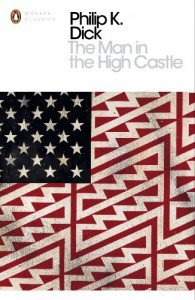A Cruel Man Delighting in Flowers
...the mildness to which men ... had yielded was only half of the intoxication of beauty, while the other half ... was of such surpassing and terrible cruelty—the most cruel of men delights himself with a flower—that beauty ... failed quickly of its effect...
Hermann Broch, The Death of Virgil
Jeremy Davies is made of ink, but don’t dip a feather in him. It tickles. He once painted a fingernail black and no one really noticed. He was disappointed. He’s also an editor, a religious atheist, a liker of strong coffees, a Shakespeare-lover, a political anarchist and someone who rarely has a pen when he needs one. He has been a PhD candidate, a personal trainer, a life model, a bouncer, an infantry soldier and someone who rarely had a pen when he needed one. He has had words published in a variety of places, in a variety of publications, in a variety of forms, in a variety of moments: Canada, Wet Ink, SMS and twelve minutes past three in the afternoon being some of these. His first novel, 'Missing Presumed Undead', will be re-published by Satalyte Publishing in February 2014. A second is on its way.
 This is a strange novel, or, perhaps more accurately, this is an estranging novel. Philip K. Dick manages to take you on a ride that is sometimes quite comfortable and unchallanging - you can sit back and admire the scenery - then, just when you think you know where you are and that the dirver knows the road rules, you blink and you're somwhere else entirely, and the driver's heading the wrong way down a one way road in an industrial estate on a cliff top doing a hundred and five.
This is a strange novel, or, perhaps more accurately, this is an estranging novel. Philip K. Dick manages to take you on a ride that is sometimes quite comfortable and unchallanging - you can sit back and admire the scenery - then, just when you think you know where you are and that the dirver knows the road rules, you blink and you're somwhere else entirely, and the driver's heading the wrong way down a one way road in an industrial estate on a cliff top doing a hundred and five.This novel deals with ideas like reality and sanity: how sense is made of things. You can be baffled, but that ideas themselves are baffling, which is part of the point. Ever noticed how life seems to make sense until you really start examining it?
If anything, it leaves you wanting more. The character development is sound, but, at times, underdeveloped if anything. About twenty pages from the end I had the literary equivelent of that feeling that you get (as put forward in 'Seinfeld') when you realise that there's no way the half hour tv show you're watching can wrap up in time and you're bound to get a 'to be continued'. Except, there's not one here. Maybe this is part of his point, but it lost him a star from me.





